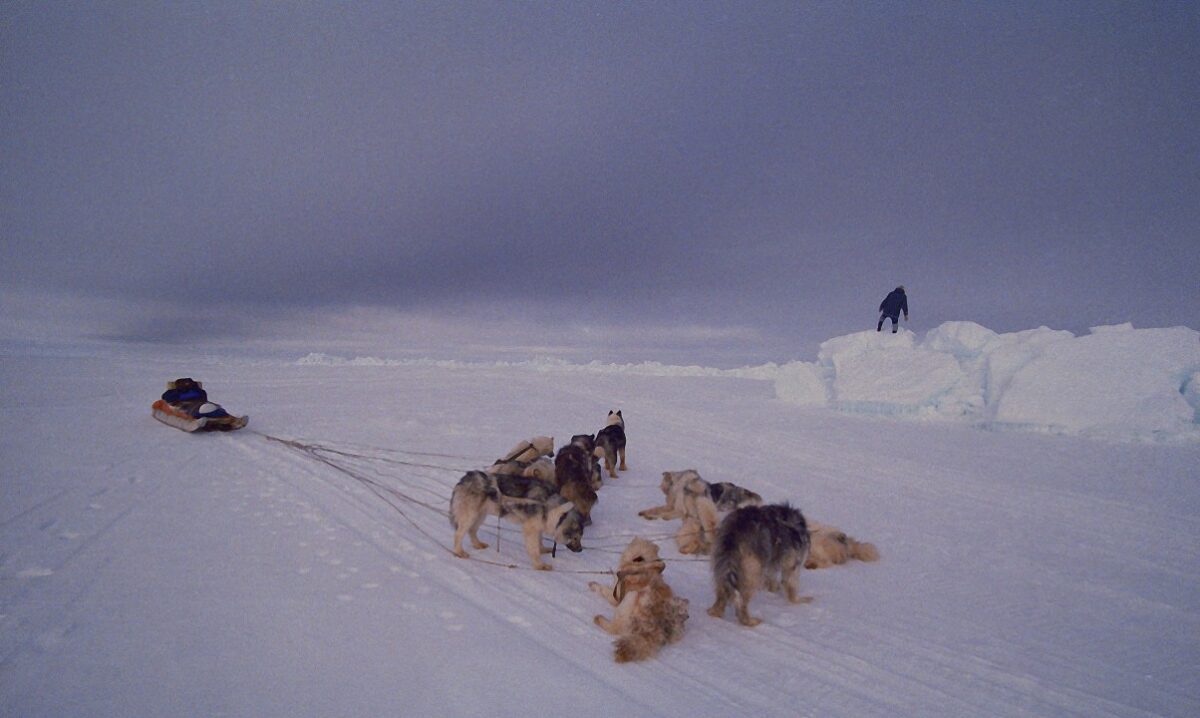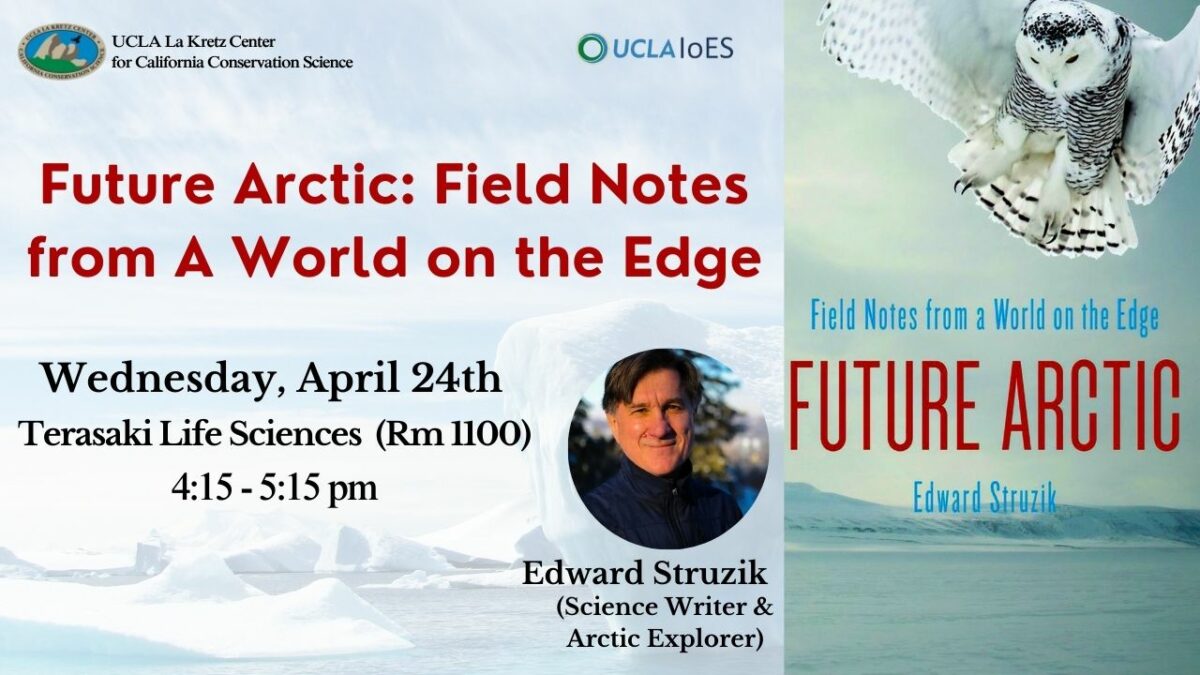
Edward Struzik Presents Future Arctic
Field Notes from a World on the Edge
-
Terasaki Life science Building (Room 1100)
610 Charles E Young Dr S
Los Angeles, CA 90095
What will the Arctic look like in the next half century? Join writer, photographer, and educator Edward Struzik as he takes you on a tour of his observations. Over the past 40 years, Struzik has traveled with with wildlife scientists, military strategists, and Indigenous peoples on foot, by kayak, and by canoe.
Join us for a special seminar featuring popular science writer and arctic explorer Edward Struzik. This will be held April 24th, from 4:15-5:15 pm, in Terasaki Life Sciences Building 1100. Struzik is an educator and fellow at the Institute for Energy and Environmental Policy at Queen’s University. Over the last three decades, Struzik’s exploration and work has unraveled many mysteries surrounding our planet’s wildest and most remote ecosystems, highlighting how they are being affected by land use and climate change. Join us as we look beyond California and into the most remote regions of our planet to see what we can learn about biodiversity and conservation under very different circumstances. This seminar is hosted by the UCLA La Kretz Center for California Conservation Science and the Institute of the Environment and Sustainability.
After the seminar, you are invited to join us for pizza and refreshments in Terasaki Life Sciences Building 1020. Please RSVP for pizza and refreshments (including dietary restrictions) by emailing zmacdonald@ioes.ucla.edu.
Future Arctic: Field Notes from A World on the Edge

The Arctic is warming at nearly four times the global rate. Sea ice cover is declining, sea levels are rising, glaciers are receding, permafrost is thawing, and Arctic storms are picking up steam faster than scientists were predicting a decade ago. By the end of the century, more rain than snow will fall in most Arctic regions. This warmer Arctic results in less time for polar bears to hunt seals and more time for biting flies to take their toll on caribou. Diseases—for which many Arctic animals have no immunity—are being transported by southern animals migrating northwards. Some of these southern animals are mating with their northern cousins and producing hybrids. The Arctic as we know it is coming to an end.
